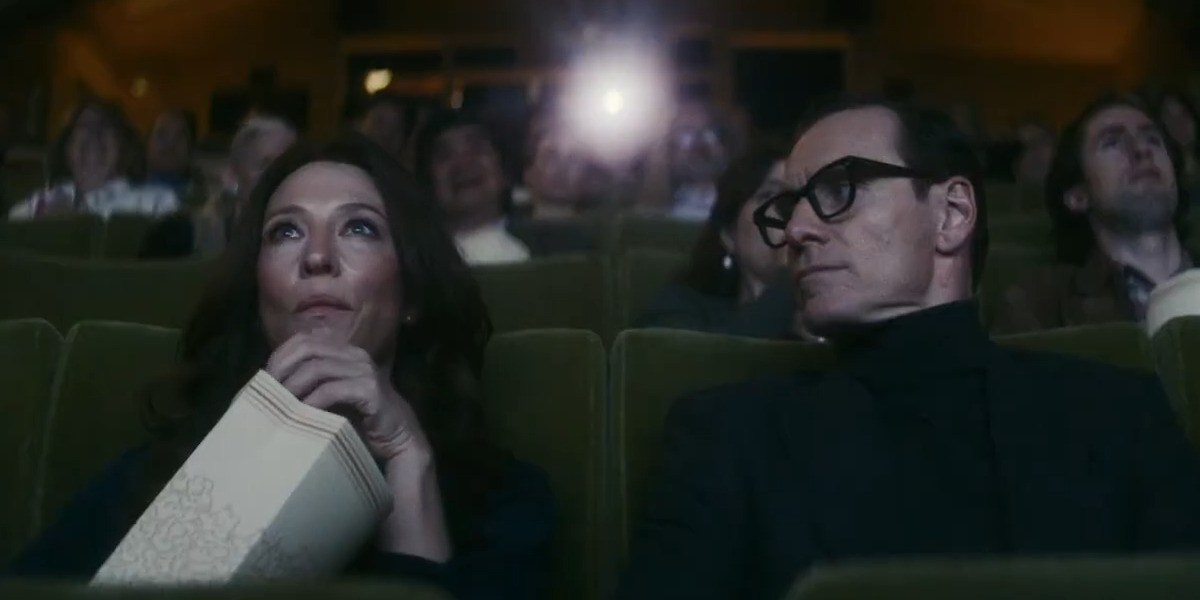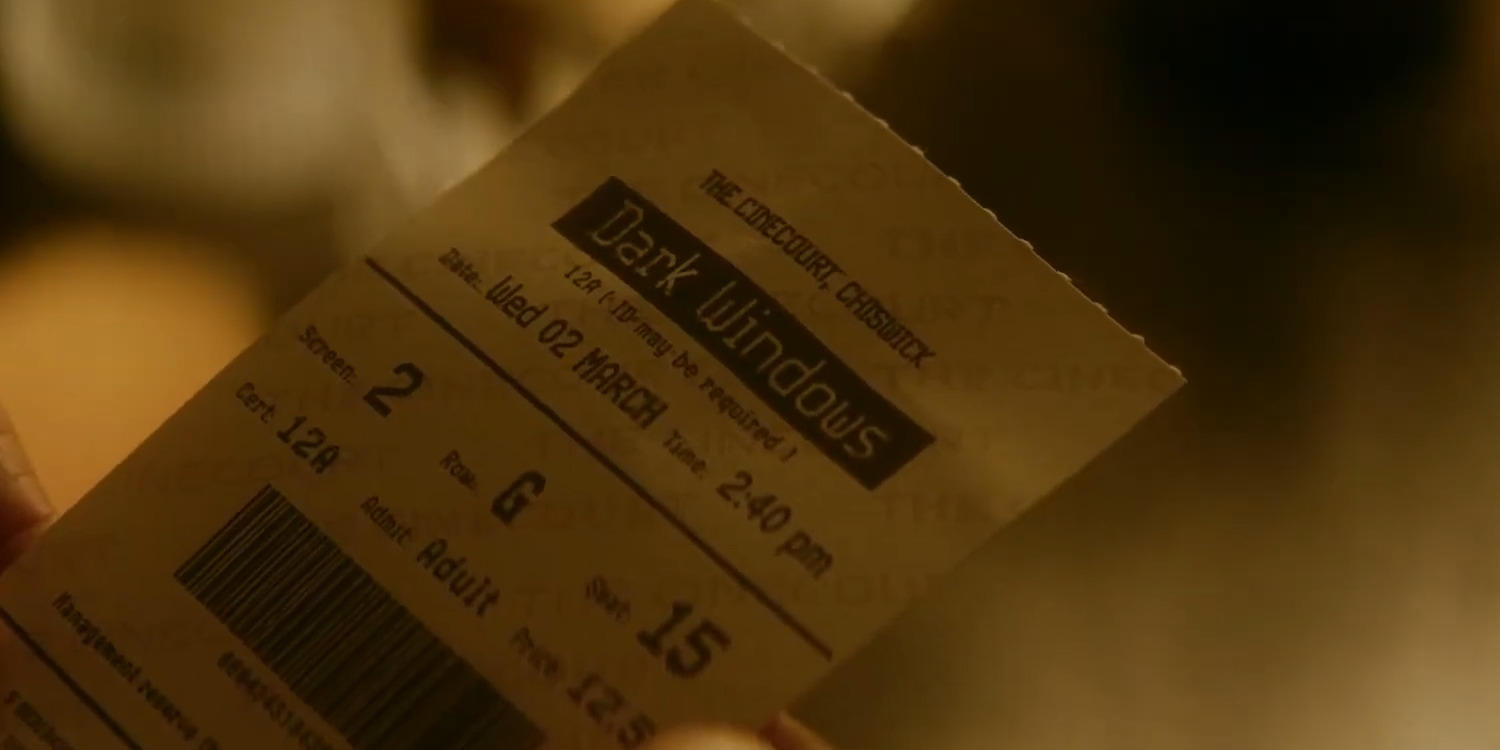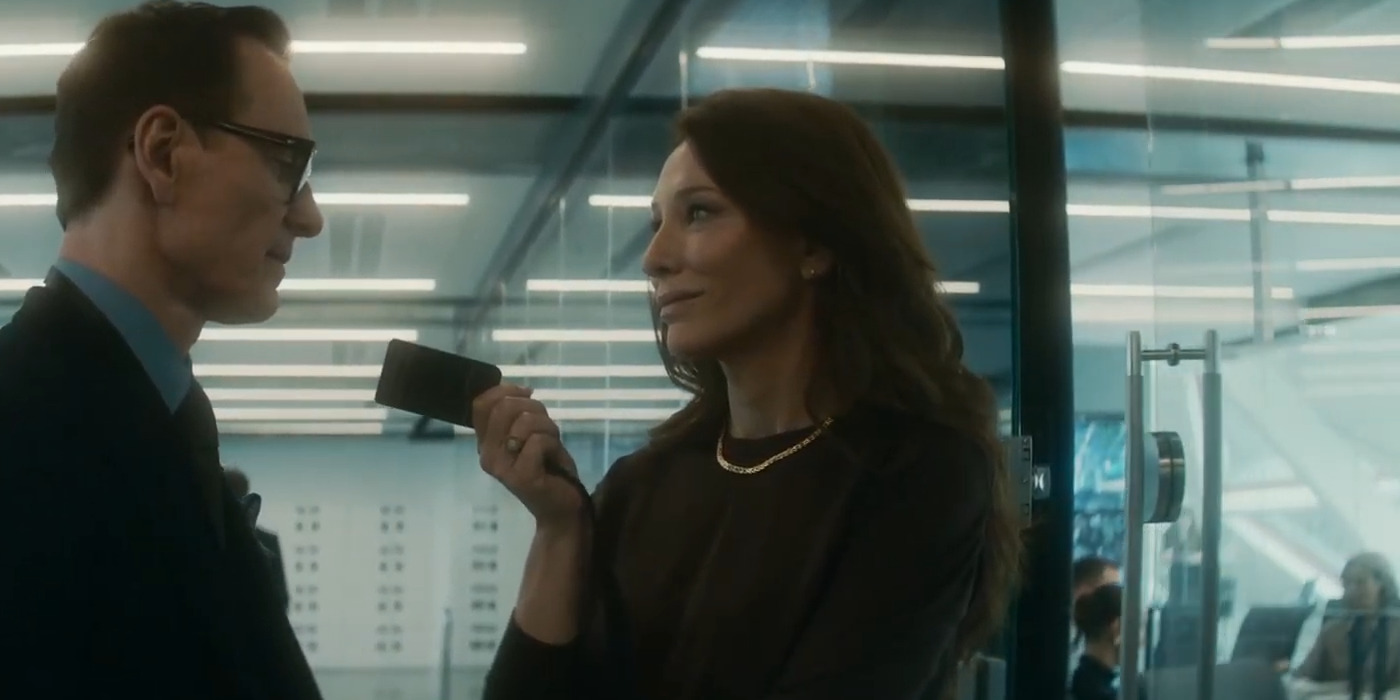‘Black Bag’ is a unique Steven Soderbergh film that is a spy thriller and an exploration into the intricacies of marriage all at once. It revolves around a couple, George and Kathryn, who work for a highly classified national cyber security organization. As a result, their professions are often based on lies and kept secrets. Consequently, things take an adverse turn when George receives a tip-off about his wife being a potential leak.
This sends the agent into a taut investigation and a dilemma as his loyalties toward his marriage and his duties are brought into question at the same time. One of the earliest clues that compel Geoge to question Kathryn’s honesty with him stems from a ticket sub to a film titled “Dark Windows,” a movie she claims to have never watched. Thus, as this element becomes a crucial part of the narrative that unfolds between the special agent spouses, one can’t help but grow curious about its existence outside of the screen.
Dark Windows Seems to be a Fictitious Element of Black Bag
While ‘Black Bag’ unravels a conspiracy plot as the center of its storyline, a subtle thematic plot simultaneously plays out about the nuances of romantic relationships/ marriages. Dark Windows, the movie introduced in the lives of George and Kathryn, seems to play a notable role in the progress of both these plotlines. For the most part, this film, sporting characters named Richard and Monica—and no evident narrative of its own—seems to be a fictional addition to the tale. Although there is a 2023 slasher horror film directed by Alex Herron that sports the same name, it doesn’t seem to have a direct connection to Steven Soderbergh’s spy thriller.

The on-screen Dark Windows movie acts as a convenient tool to instill consequential doubt between the central spouses. George spies the ticket for the film in his wife’s vanity bin, which compels him to take the warning about Kathryn’s treason seriously. Therefore, instead of coming clean about the recent development, George decides to test his wife by taking her out for a screening of the film. The fact that she seems genuinely surprised at the film’s twists and turns further strengthens his belief that Kathryn’s connection to the stub in her trash can is pointing toward a deceit of some kind. As such, the thematic purpose of the film—to sow seeds of doubt between the couple—remains reflected in its title.

Dark Windows can allude to a necessity for privacy and a lack of transparency. It highlights a matter of seclusion that demands the inability of others to peek inside one’s affairs. When applied to the relationship between two people, this can suggest doubts about fidelity. The narrative purpose of Dark Windows doesn’t extend beyond a smaller piece in an overarching puzzle. However, its thematic insinuations seem to underline the nuances of George and Kathryn’s relationship at a certain point in the story. Thus, although ultimately a fictional element in the story, the movie serves a significant purpose in the story of the spy spouses.
Read More: The Studio: Is Alphabet City a Real Ron Howard Crime Movie?


